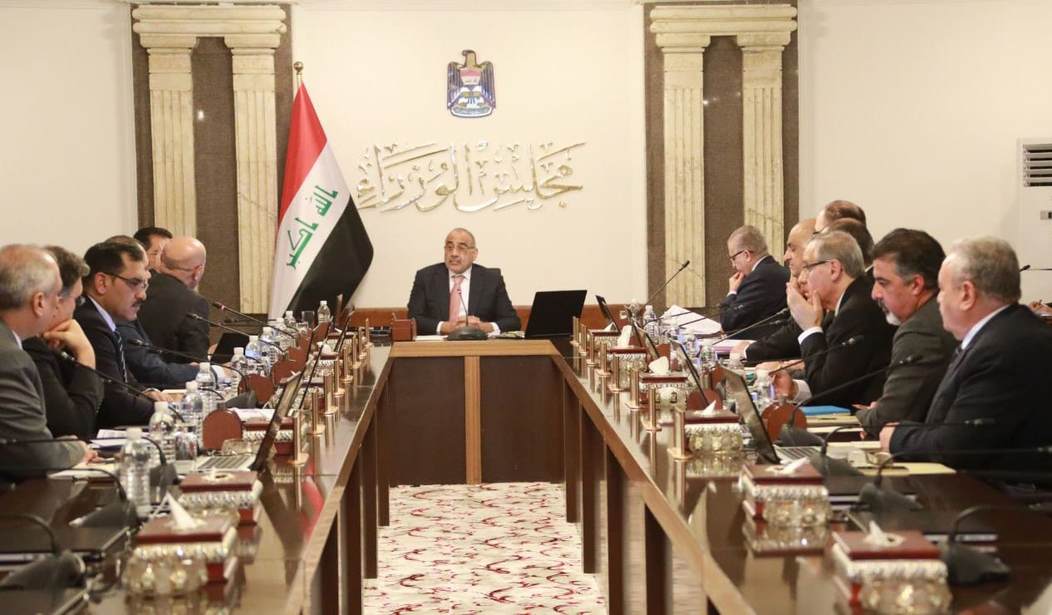On Christmas Eve, the government of Iraq announced that Christmas Day — December 25 — would become a national holiday in the war-torn Middle Eastern country. Iraq is roughly 95 percent Muslim and only has an estimated 300,000 Christians.
“The [Iraqi Government] announces Christmas Day to be an official holiday across Iraq. Happy Christmas to our Christian citizens, all Iraqis and to all who are celebrating around the world,” the official Iraqi government Twitter account announced.
The @IraqiGovt announces Christmas Day to be an official holiday across Iraq. Happy Christmas to our Christian citizens, all Iraqis and to all who are celebrating around the world.
— Government of Iraq – الحكومة العراقية (@IraqiGovt) December 24, 2018
A post on Christmas Day provided a short summary of the Iraqi cabinet meeting chaired by Prime Minister Adil Abdul-Mahdi. “The Cabinet votes to amend the national holidays law in order to make 25th December of each year, Christmas Day, an official holiday across Iraq,” the cabinet reported. The body also approved “the annual report of the Anti-Money Laundering and Counter-Terrorism Financing Council.”
As reported by Britain’s Daily Mail, roughly 95 percent of Iraqis are Muslim (66 percent Shia and 29 percent Sunni), and most of the country’s roughly 300,000 Christians are ethnic Assyrians who speak Aramaic. Smaller communities of Armenians, Kurds, Arabs, and Iraqi Turkmen are scattered across the country.
Before the 2003 war and the rise of the Islamic State (ISIS), Iraq had a thriving Christian minority, 1.4 million strong. The vast majority of them have fled the country, some settling in the United States.
Last year, a Muslim Iraqi businessman erected a gigantic Christmas tree in solidarity with the country’s vanishing Christian population.
Yet Muslims share more than solidarity with Christians when it comes to Yuletide. While believers in Islam do not accept Jesus Christ as the Son of God (Allah has no son, according to the Quran), they do believe the Nazarene carpenter was born of a virgin. Muslims consider Jesus a prophet of Allah (without any evidence from the time of Jesus to support this view), and His birth a reason to celebrate Christmas.
Many Muslims in the United States celebrate Christmas as a religious holiday.
“Jesus (peace be upon him) is one of the highest messengers and prophets, miraculously born to the Virgin Mary, and chosen by God to be the Messiah who will return to establish justice on Earth after it has been filled with injustice,” Imam Omar Suleiman, the founder and president of the Yaqeen Institute for Islamic Research, told The Huffington Post.
Suleiman reaffirmed the virgin birth and explained that Mary “occupies the highest position of any woman in Islam.” The Quran describes her as “chosen above the woman of all worlds as an example of perfection, devotion and modesty for men or women.” In fact, an entire chapter of the Muslim holy book is named after her.
Aasif Mandvi, a Muslim actor and writer known for Spider Man 2 (2004) and The Dictator (2012), told The Huffington Post he was “a great Christmas caroler.” In a refreshing burst of politically incorrect humor, he jokingly warned that if you screw up his harmony in “God Rest Ye Merry Gentlemen,” he was “likely to start a holy war!” He even called Christmas “the best holiday!”
For Christians, Christmas is intimately connected with the other Christian high holy day, Easter. Based on the four Gospels — the earliest and most direct evidence for Jesus — Christians believe Jesus died in a Roman crucifixion after being severely flogged, and that He rose again from death three days later. This is the center of the Christian faith, because Christ’s death atoned for sin and His Resurrection proved His divinity.
Most Muslims accept the “swoon theory,” that Jesus was placed on the cross but did not actually die, so He recuperated in the tomb rather than being resurrected. This view ignores key medical and historical evidence suggesting Jesus would not possibly survive a crucifixion — especially after a horrific scourging. After all, the gospel accounts record that when Jesus’ side was pierced, water and blood poured out, suggesting that His pericardium had filled with fluid, a sign of death by asphyxiation.
So, while Muslims can celebrate Christmas as a religious holiday, they cannot endorse the message of Easter, and therefore are extremely less likely to celebrate that holiday.
With Iraq’s dwindling Christian population, it makes sense for the government to make Christmas a national holiday — partially to help convince the remaining Christians to stay and partially because Muslims can also celebrate this holiday.
Follow the author of this article on Twitter at @Tyler2ONeil.









Join the conversation as a VIP Member